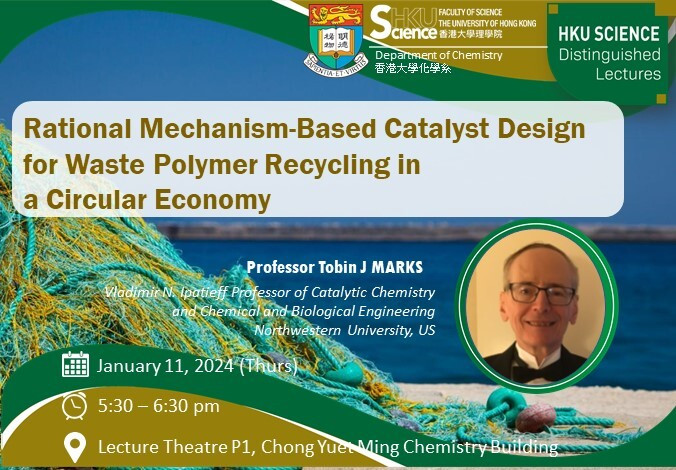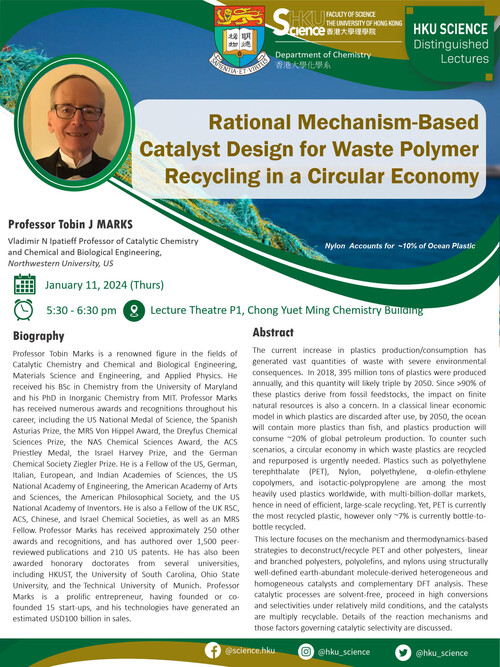Speaker Professor Tobin J MARKS
Vladimir N. Ipatieff Professor of Catalytic Chemistry and Chemical and Biological Engineering Northwestern University, US
Professor Tobin Marks is a renowned figure in the fields of Catalytic Chemistry and Chemical and Biological Engineering, Materials Science and Engineering, and Applied Physics. He received his BSc in Chemistry from the University of Maryland and his PhD in Inorganic Chemistry from MIT. Professor Marks has received numerous awards and recognitions throughout his career, including the US National Medal of Science, the Spanish Asturias Prize, the MRS Von Hippel Award, the Dreyfus Chemical Sciences Prize, the NAS Chemical Sciences Award, the ACS Priestley Medal, the Israel Harvey Prize, and the German Chemical Society Ziegler Prize. He is a Fellow of the US, German, Italian, European, and Indian Academies of Sciences, the US National Academy of Engineering, the American Academy of Arts and Sciences, the American Philosophical Society, and the US National Academy of Inventors. He is also a Fellow of the UK RSC, ACS, Chinese, and Israel Chemical Societies, as well as a MRS Fellow. Professor Marks has received approximately 250 other awards and recognitions, and has authored over 1,500 peer-reviewed publications and 210 US patents. He has also been awarded honorary doctorates from several universities, including HKUST, the University of South Carolina, Ohio State University, and the Technical University of Munich. Professor Marks is a prolific entrepreneur, having founded or co-founded 15 start-ups, and his technologies have generated an estimated USD100 billion in sales.




